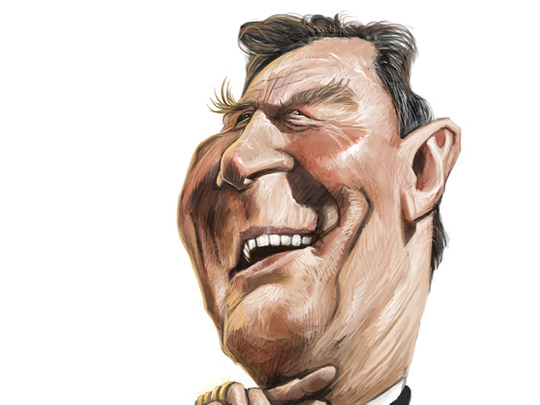
While Angela Merkel, at present serving her third term in office as the Chancellor of Germany, is always making headlines, her predecessor Gerhard Schröder appears to be maintaining a low-profile. Wisely so.
Photos of Schröder celebrating his 70th birthday in April this year with his friend Russian President Vladimir Putin at a lavish party in St Petersburg drew wide criticism in Germany.
Andreas Schockenhoff, the deputy chief whip of Merkels’ ruling Christian Democratic Party described Schröder’s behaviour as “completely irresponsible”.
Born in the village of Mossenberg, Lower Saxony, on April 7, 1944, Schröder never knew his father, who fell in Romania fighting for the Wehrmacht during the war. His mother took five cleaning jobs at once to feed her five children and to fight off the bailiffs who were frequently knocking at the door. Apart from summers spent picking potatoes, his first proper job, as the eldest sibling and family father figure, was with an ironmonger; later he worked on building sites before going to evening school to do his Abitur, or A-levels.
A law degree at Göttingen university started him on the political ladder and led to the self-styled Marxist and leader of the young Social Democrats (or Jusos) defending in court left-wing terrorists, including the founder of the extreme left Red Army Faction, Horst Mahler.
His Chancellorship ambitions were already clear in the early Eighties. He started off in provincial politics — daringly delivering his maiden speech without a tie after insisting he wanted to breathe fresh life into parliament’s stodgy ranks — and rose to become Minister-President of the federal state of Lower Saxony in 1990.
According to one account, he made his way to the gates of the chancellery in Bonn one night in the early 1980s after a heavy drinking session, rattled them loudly and cried: ‘I want to be in there!’
His colourful private life began with the first of four marriages, providing rich pickings for the opposition who produced campaign T-shirts reading “Three women can’t be wrong”. In 2002, the opposition also rolled out his third ex-wife who looked into the camera and said: “I left my husband, you can do it too!”
In 1968 he married his childhood sweetheart, librarian Eva Schubach, divorcing her three years later as his political career took hold. The following year he wed political activist and teacher Anne Taschenmacher.
Wife number three (1984) was Hiltrud Hampel, a socialite environmentalist. They became known as the Clintons of Saxony: Germany’s first celebrity political couple who for 12 years wooed the German public and produced copious amounts of material for the gossip columns.
While Schröder worked on his role as career politician, “Hilu”, a committed vegetarian, campaigned for animal rights and tried to engage her husband’s interest.
His image as hard left-winger was shattered during those years when he swapped his trade union friends for industrial leaders, particularly VW executives. He also abandoned many of his left-wing views on asylum and armaments.
In 1996, tipped off about a tabloid plan to expose his affair with the political journalist Doris Köpf, he broke the news to Hilu who ordered him to pack his bags. While she claimed the reason for the marriage collapse was the affair, according to his version, she had displayed chronic inflexibility, trying for instance to force her vegetarianism on him by refusing to cook his favourite meal or allow him to eat curry wursts at home.
When he married Doris, petite, blonde and 20 years his junior, in 1998, he warned her that he changed his wives every 12 years. “In that case my successor will have to be able to push a wheelchair,” she is reported to have quipped in reply.
Schröder’s four marriages have earned him the sobriquet the “Audi man”, a reference to the four-ring symbol of Audi motorcars. Another nickname is “The Lord of the Rings”.
The young Schröder was a Marxist and environmentalist. In the early 1970s he idolised Social Democrat (SPD) Chancellor Willy Brandt, whose Ostpolitik promised better relations with communist Eastern Europe and the Soviet Union.
But somewhere along the line the idealist also developed a taste for smart suits and cashmere sweaters. Before long he was sitting on the board of Volkswagen.
He dismayed some supporters in 2002, by launching a legal case widely seen as an attack on freedom of speech — trying to stop a news agency repeating allegations that he dyed his hair.
However he is often described as charismatic and media-savvy, and his rise to the top owed much to confident handling of the media.
In the run-up to the 1998 general election there were three Social Democrats who could have been chosen as the party’s candidate for the chancellorship — himself, “Red” Oskar Lafontaine, and Rudolf Scharping.
Schroeder was selected because polls showed voters warmed to his bluff manner, and broad smile. He won the election promising to create a “New Middle” in German politics.
He also promised more jobs, saying, unwisely, that his government would not deserve to remain in power if it failed to achieve a clear reduction in the number out of work.
That has been the most conspicuous failure of his chancellorship.
During his first term the number of unemployed dropped, then rose to much the same level he had inherited from Helmut Kohl.
In February 2005, the number of German jobless rose above five million for the first time.
–Source: Guardian and BBC
This column aims to profile personalities who made the news once but have now faded from the spotlight.
What he said:
We must take care that globalisation does not become something people become afraid of.
I can’t let important policy decisions hinge on the fact that an election is coming up every 90 days
I am not the German Tony Blair. Nor am I the German Bill Clinton. I am Gerhard Schroeder, chancellor of Germany, responsible for Germany.











